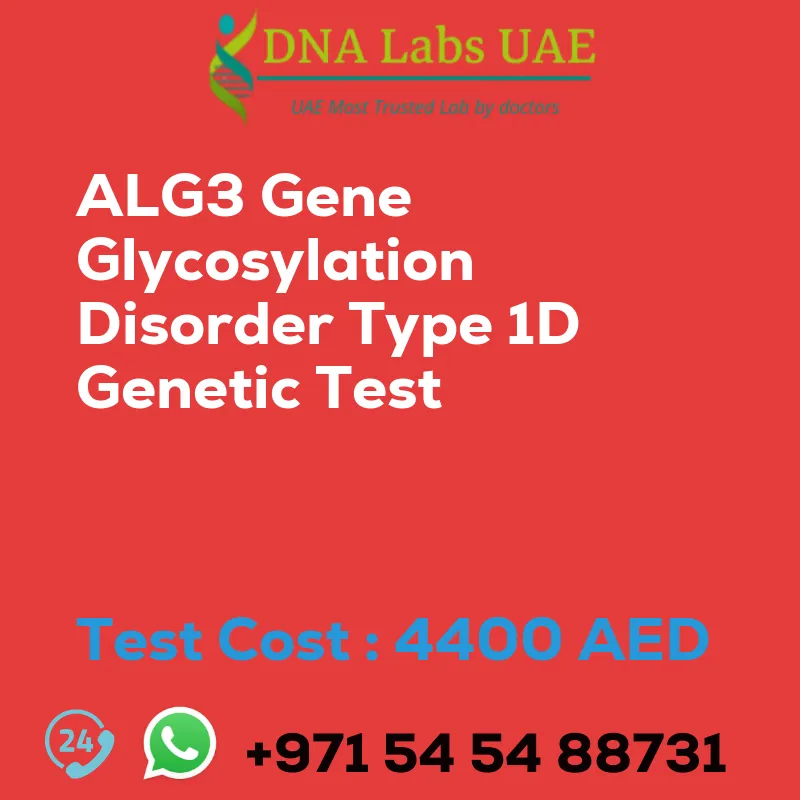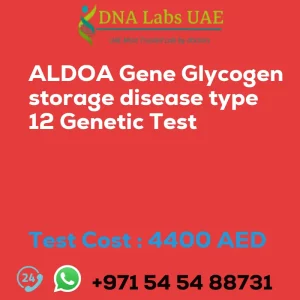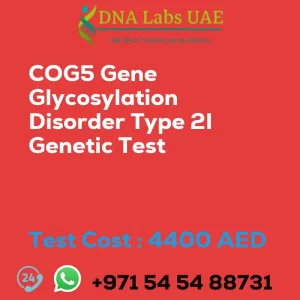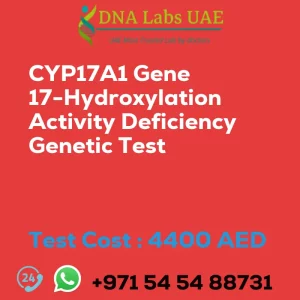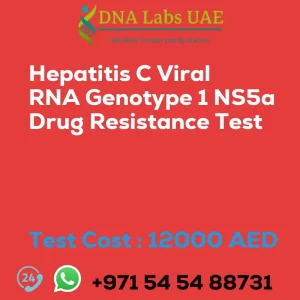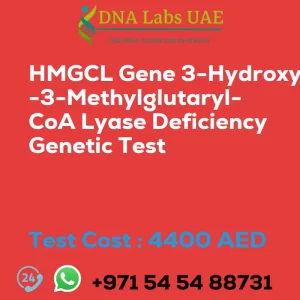ALG3 Gene Glycosylation Disorder Type 1D Genetic Test
Welcome to DNA Labs UAE, where we offer the ALG3 Gene Glycosylation Disorder Type 1D Genetic Test. This test is designed to detect mutations in the ALG3 gene, which is responsible for encoding an enzyme called dolichyl-P-Man:Man(7)GlcNAc(2)-PP-dolichyl-alpha-3-mannosyltransferase. Mutations in this gene can lead to a glycosylation disorder known as Congenital Disorder of Glycosylation Type 1D (CDG1D).
Test Components
The ALG3 Gene Glycosylation Disorder Type 1D Genetic Test includes the following components:
- Sample Condition: Blood or Extracted DNA or One drop Blood on FTA Card
- Report Delivery: 3 to 4 Weeks
- Method: NGS Technology
- Test Type: Metabolic Disorders
- Doctor: General Physician
- Test Department: Genetics
Test Cost
The cost of the ALG3 Gene Glycosylation Disorder Type 1D Genetic Test is 4400.0 AED.
Symptoms and Diagnosis
CDG1D is a rare genetic disorder characterized by abnormal protein glycosylation. Symptoms can vary widely among affected individuals and may include developmental delay, intellectual disability, seizures, abnormal facial features, failure to thrive, and skeletal abnormalities. To diagnose CDG1D, a Genetic Counselling session is conducted to draw a pedigree chart of family members affected with Glycosylation Disorder Type 1D. This information, along with the results of the ALG3 Gene Glycosylation Disorder Type 1D Genetic Test, can confirm a diagnosis of CDG1D.
About NGS Technology
NGS (Next-Generation Sequencing) genetic testing is a diagnostic tool used to identify mutations in the ALG3 gene. This type of testing allows for the sequencing of multiple genes simultaneously, providing a comprehensive analysis of the patient’s genetic information. NGS can detect various types of mutations, including single nucleotide variants, small insertions or deletions, and larger structural rearrangements.
Importance of Genetic Testing
By identifying mutations in the ALG3 gene through NGS genetic testing, healthcare professionals can confirm a diagnosis of CDG1D. This information is essential for providing appropriate medical management and genetic counseling to affected individuals and their families.
For more information about the ALG3 Gene Glycosylation Disorder Type 1D Genetic Test or to schedule an appointment, please contact DNA Labs UAE.
| Test Name | ALG3 Gene Glycosylation disorder type 1D Genetic Test |
|---|---|
| Components | |
| Price | 4400.0 AED |
| Sample Condition | Blood or Extracted DNA or One drop Blood on FTA Card |
| Report Delivery | 3 to 4 Weeks |
| Method | NGS Technology |
| Test type | Metabolic Disorders |
| Doctor | General Physician |
| Test Department: | Genetics |
| Pre Test Information | Clinical History of Patient who is going for ALG3 Gene Glycosylation disorder type 1D NGS Genetic DNA Test A Genetic Counselling session to draw a pedigree chart of family members affected with Glycosylation disorder type 1D |
| Test Details |
The ALG3 gene is responsible for encoding an enzyme called dolichyl-P-Man:Man(7)GlcNAc(2)-PP-dolichyl-alpha-3-mannosyltransferase. This enzyme plays a crucial role in the process of protein glycosylation, which is the addition of sugar molecules to proteins. Mutations in the ALG3 gene can lead to a glycosylation disorder known as Congenital Disorder of Glycosylation Type 1D (CDG1D). CDG1D is a rare genetic disorder characterized by abnormal protein glycosylation, leading to a wide range of symptoms. These symptoms can vary widely among affected individuals but may include developmental delay, intellectual disability, seizures, abnormal facial features, failure to thrive, and skeletal abnormalities. NGS (Next-Generation Sequencing) genetic testing is a diagnostic tool used to identify mutations in the ALG3 gene. This type of testing allows for the sequencing of multiple genes simultaneously, providing a comprehensive analysis of the patient’s genetic information. NGS can detect various types of mutations, including single nucleotide variants, small insertions or deletions, and larger structural rearrangements. By identifying mutations in the ALG3 gene through NGS genetic testing, healthcare professionals can confirm a diagnosis of CDG1D. This information is essential for providing appropriate medical management and genetic counseling to affected individuals and their families. |

